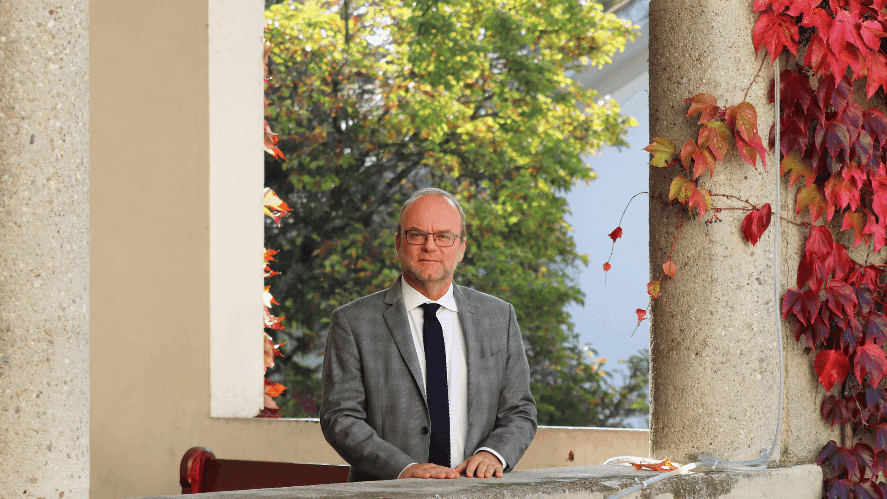We use cookies to improve your online experiences. To learn more and choose your cookies options, please refer to our cookie policy.
Join our next early years Open Day

Private schools play a recognised social role, complementing the public sector which ensures equal opportunities. Without private schools, there can be no economic promotion, which attracts foreign investors and sees talented people settle here, provided they can send their children to school: bilingual programmes and diplomas such as the International Baccalaureate (IB) are necessary. The IB, like the French bac for example, ensures the transferability of pupils to other countries where their parents' careers could take them. To those who would object to the integration of these foreigners here, let me remind you that 800,000 Swiss people also live abroad. You could say that this service is free for society: private schools do not receive a single penny in state subsidies and rely on their own resources, or those of corporations. This is in stark contrast to the French system, where the vast majority of private schools have their teachers' salaries paid by the Education Nationale.
Private school students who go abroad are part of Switzerland's "soft power": they are imbued with Swiss made and will naturally look to the Swiss economy in the future.
Private schools also play a complementary role in terms of educational diversity for Swiss and foreign families living in our regions. There are as many intelligences as there are children: the degree of personalisation and support for pupils is high. As families can leave a private school every year, these schools are obliged to constantly improve, which is a guarantee of quality. As true laboratories for educational innovation, they have the advantage of agility and open their doors to public sector staff who wish to explore new concepts.
The legal framework for private schools is not very restrictive, in keeping with the country's liberal tradition. In the canton of Vaud, headmasters and headmistresses are required to obtain a licence to run a school following a state audit. Compulsory school teachers (1st to 11th grades) are subject to a teaching licence, after examination by a government commission. This legal framework is currently under review, initiated by Cesla Amarelle and taken over by Frédéric Borloz. The private schools are also asking to be able to sit the same cantonal Matura exams as public school pupils, instead of the Swiss (federal) Matura exam originally designed for Swiss nationals living abroad. (I note that the IBO, based in the Netherlands, authorises schools to organise international baccalaureate exams on their premises, and that an agreement with the Grenoble education authority allows continuous assessment of the French bac here, while Lausanne has not yet taken the step for private schools in Lausanne, Vevey or Nyon). There is also an obligation to report serious child protection cases to the state, as well as repeated checks of colleagues' criminal records.
Private schools have a variety of governance models: some are not-for-profit, others are for-profit; some are family-run, others belong to a group. They all have to balance their books and make enough margin to renovate and innovate. In my experience, governance is not the decisive criterion in parents' choices, but rather the educational project, the quality of the school, exam results and the values of the school community. When you compare their fees with the cost of a pupil to the State, you can see that, from a management point of view, they are not "expensive": to my knowledge, a high school student in the canton of Vaud costs the State more than CHF 30,000. In the canton of Vaud, between 7% and 8% of pupils attend private schools. This figure rises to between 15% and 19% in high school. These are all pupils who are not a burden on the State budget, or on the taxpayer, who will save an estimated CHF 156 million a year according to KPMG's economic impact study.
In schools that mainly serve the global economy, up to 2/3 of parents receive all or part of their school fees as a subsidy from their employer. But in schools with a strong local component, parents pay out of their own pockets. Some private schools ask parents to buy a school uniform, for example, but it is equivalent to the cost of "civilian" clothes for the children.
Private schools, including boarding schools and hotel schools, are heirs to a long tradition for which Switzerland is also famous. According to the KPMG study, they bring an added value of CHF 1.4 billion to the canton of Vaud. This represents 2% of Vaud's GDP. Finally, they generate around CHF 50 million in tax revenue for the canton and its municipalities.
In a touching conversation with a parent, he said : ‘In the tumult of today's world, I hope that Champittet can remain a school rooted in enduring values’.
Chemin de Champittet
Case postale 622
1009 Pully-Lausanne
Switzerland
We use cookies to improve your online experiences. To learn more and choose your cookies options, please refer to our cookie policy.